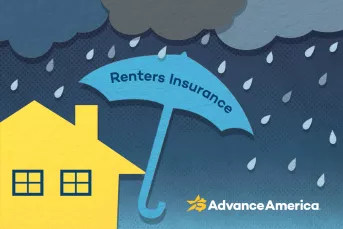
Leasing vs. Buying a Car: 7 Things To Consider First
Getting a new car is an exciting experience – and not just because of that “new car smell.” Newer cars are more reliable, less likely to have mechanical issues, and offer the latest features and technology.
But when you’re in the market for a new car, you’ll need to decide whether to lease one or buy it outright. Both options have advantages and disadvantages, which can make choosing the right one difficult.
In this article, we’ll explore the advantages and disadvantages of leasing vs. buying so you can determine which route is right for you.
7 factors to consider when deciding whether to buy or lease
There’s no right or wrong opinion on car leasing vs. buying. There are, however, several things to consider when trying to decide whether to lease or finance.
Monthly payments
Most brand-new vehicles cost between $30,000 and $60,000, and most of us don’t have that kind of cash lying around. Therefore, whether you decide to lease or buy a car, you’ll likely be looking at monthly payments.
Your monthly payments will differ depending on whether you buy or lease. In most cases, monthly payments are several hundred dollars less when you lease. Keep in mind, however, that leasing a car is essentially like renting one, which means those payments don’t go toward purchasing the car.
Although your monthly auto loan payments are higher when you finance a car, your payments go toward the vehicle itself. This means that at the end of your financing term, you will own the car free and clear. When you lease, you will still need to pay off the remaining value of the car at the end of your lease term if you want to buy it.
>Related: How To Get Help Paying Your Car Insurance
Loan term
Loan terms will vary depending on whether you buy or lease and which dealership you go through. Car dealers can determine their own loan terms for both options, so be sure to do your homework and review the paperwork carefully before signing.
In most cases, however, leasing has shorter terms than an auto loan. The difference is that when you come to the end of an auto loan term, you own the car outright.
When you come to the end of a lease term, you have to choose whether to renew the lease, return the car, or purchase it. None of the money you paid up to that point counts toward buying the car.
Upfront cost
A major benefit of leasing a car is fewer upfront costs compared to buying.
When you buy a car through financing, most dealers expect you to make a down payment between 10% and 20% of the asking price, which can be anywhere from $3,000 to $10,000. While leasing might require you to provide a security deposit or down payment, it’s typically nowhere near the amount of an auto loan down payment.
Fees
While leasing a car offers lower monthly payments and little to no upfront cost, the fees associated with leasing can be frustrating, to say the least.
In addition to requiring a security deposit, leasing also comes with disposition fees, initiation fees, and potential penalties if you violate the terms of the lease.
- Disposition fee: Paid when you return the car at the end of your lease. Can be as much as $350.
- Lease initiation fee: Paid when you initially sign a lease.
- Lease penalties: Charged if you violate the terms of the lease, which vary from car to car and dealer to dealer.
Lease penalties can include not taking your car to the mechanic often enough, driving too many miles, or returning the car dirty or with excess wear and tear.
How much you drive
Most lease agreements have a mileage stipulation built into the contract.
For instance, standard leasing procedures typically allow for up to 12,000 miles per year, or 36,000 miles total, during a three-year period. When you go over this allotment, you will be charged anywhere from 10 to 30 cents per mile. That can add up quickly!
Business or personal: What do you use your car for?
When deciding whether to lease vs. buy, ask yourself how you plan to use the vehicle. Payments are subject to tax exemptions when you lease a car for business, but not for personal use.
If you think leasing a work car can be beneficial for tax purposes, check with your accountant first.
Upkeep
Another big advantage of leasing a car is that you don’t have to worry about paying for major repairs. Everything is typically covered under warranty, which means your only upkeep expenses are standard oil changes, tire rotations, and occasional maintenance.
The same is true for buying a car under warranty, but the pressure is more on you to be proactive with car maintenance and repairs, whereas the dealer takes care of everything when you lease.
While you have more warranty considerations when you buy a car, you also have more freedom to customize and personalize your vehicle. When you lease, you’re stuck with whatever the dealer has at the time.
Types of car loans
If you choose to buy your car but don’t want to finance the car and make payments directly through the dealer, you can apply for an auto loan from a third-party lender. If you decide to go this route, you may be able to choose between a secured loan or an unsecured loan.
A secured loan is an auto loan that requires collateral. In most cases, the collateral is the car you’re buying. Secured loans tend to have fairly low monthly payments and interest rates. The downside is that if you’re unable to make your payments, the lender can repossess your vehicle.
Unsecured loans, on the other hand, are personal loans that don’t require collateral. Your credit score determines the terms and interest rates, so the higher your score, the lower your interest rate and monthly payment.
Leasing vs. buying: Which is right for you?
The final decision between buying vs. leasing a car is entirely up to you and will depend on your personal preferences and financial situation. If you value lower monthly payments and potential tax exemptions and don’t want to deal with the stress of ownership, leasing a car isn’t a bad option.
However, if you’re planning for long-term ownership and are okay with higher monthly payments in the short term, buying is the better option.
Notice: Information provided in this article is for informational purposes only. Consult your attorney or financial advisor about your financial circumstances.


